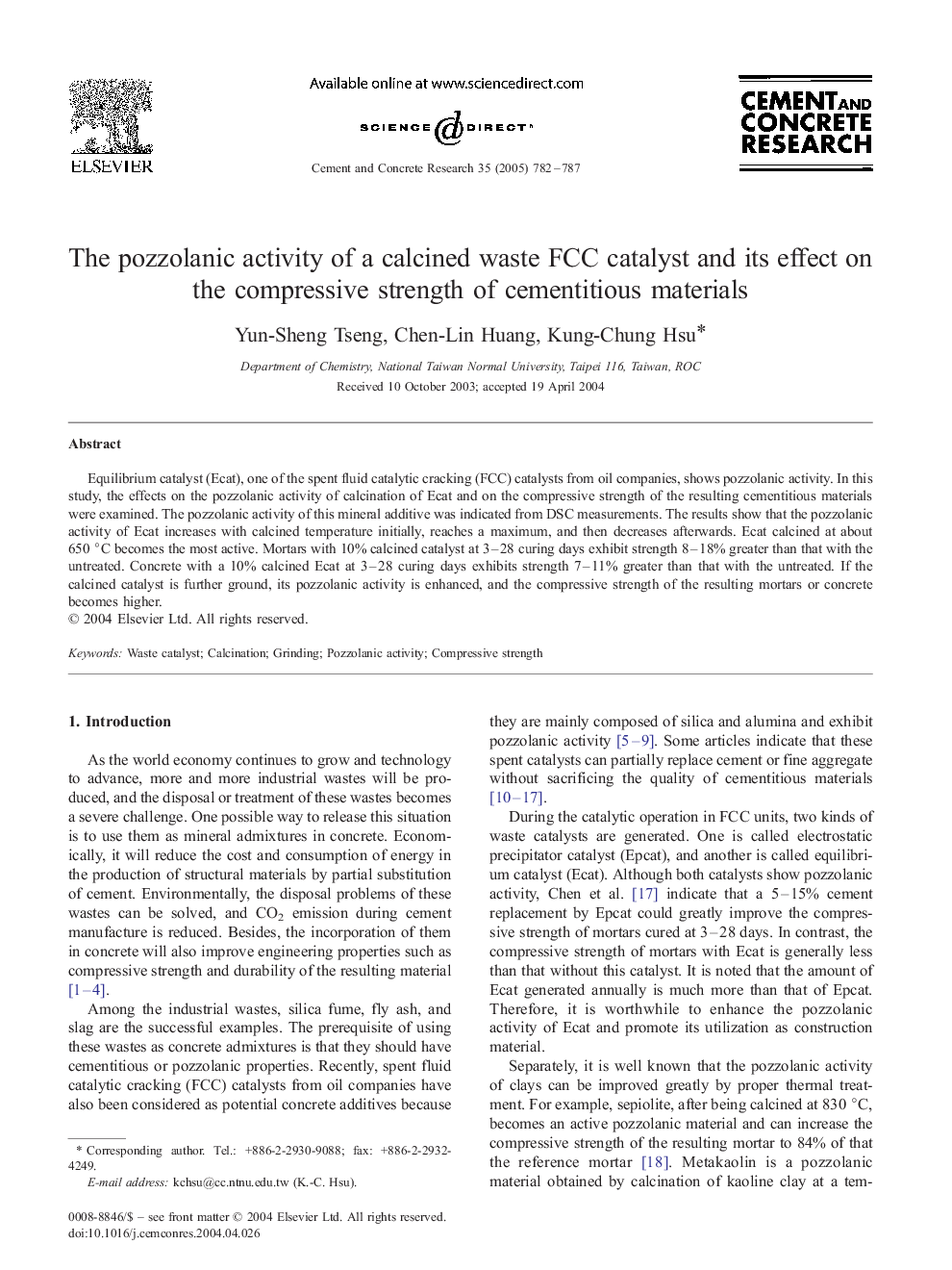| Article ID | Journal | Published Year | Pages | File Type |
|---|---|---|---|---|
| 10622401 | Cement and Concrete Research | 2005 | 6 Pages |
Abstract
Equilibrium catalyst (Ecat), one of the spent fluid catalytic cracking (FCC) catalysts from oil companies, shows pozzolanic activity. In this study, the effects on the pozzolanic activity of calcination of Ecat and on the compressive strength of the resulting cementitious materials were examined. The pozzolanic activity of this mineral additive was indicated from DSC measurements. The results show that the pozzolanic activity of Ecat increases with calcined temperature initially, reaches a maximum, and then decreases afterwards. Ecat calcined at about 650 °C becomes the most active. Mortars with 10% calcined catalyst at 3-28 curing days exhibit strength 8-18% greater than that with the untreated. Concrete with a 10% calcined Ecat at 3-28 curing days exhibits strength 7-11% greater than that with the untreated. If the calcined catalyst is further ground, its pozzolanic activity is enhanced, and the compressive strength of the resulting mortars or concrete becomes higher.
Related Topics
Physical Sciences and Engineering
Engineering
Industrial and Manufacturing Engineering
Authors
Yun-Sheng Tseng, Chen-Lin Huang, Kung-Chung Hsu,
